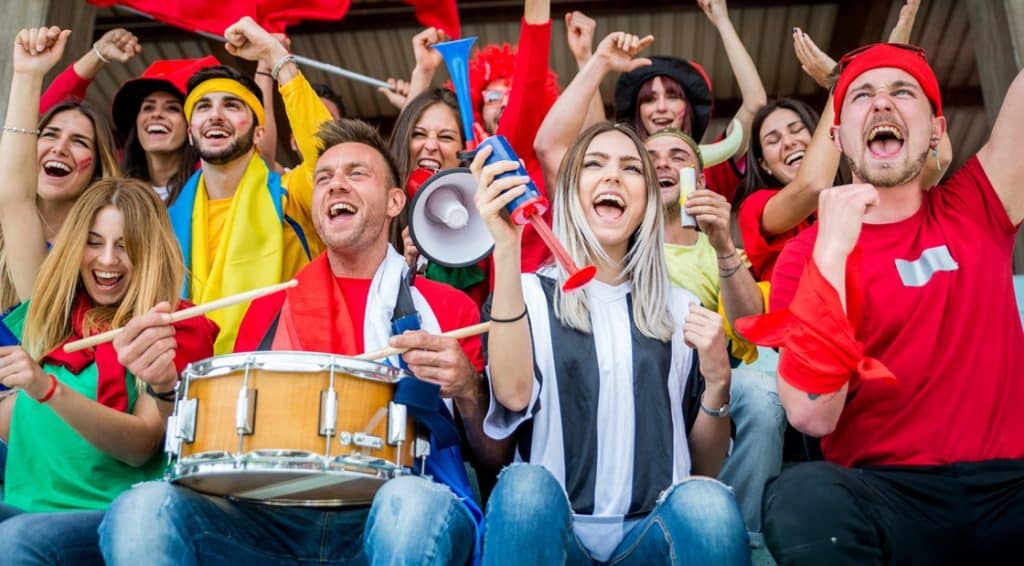
Sporting events have always played a significant role in our lives. Whether it’s a local game or an international competition like the Olympics, the power of sports to bring people together, build community spirit, and foster physical and mental well-being is undeniable. But why are sporting events important? What makes them more than just games or pastimes? Today, I’m diving into why sporting events are important and how they impact different aspects of life, from the individual to the global stage.
The Cultural Impact of Sporting Events

The culture of sports is deeply rooted in societies across the globe. From ancient Olympic games in Greece to the modern-day Super Bowl, sporting events have always reflected the values and passions of the time. They serve as platforms where cultures converge and traditions are showcased. I find it fascinating how, no matter where you’re from, sporting events create a sense of belonging and shared experience.
But it’s not just about the spectacle. Sporting events highlight the importance of fair play, discipline, and perseverance. When we look at the stories behind the athletes, we see examples of individuals who have overcome tremendous odds. These events inspire millions worldwide, and that inspiration becomes embedded in the cultural fabric of societies. Isn’t it amazing how sports can inspire unity even in a world often divided by politics and ideologies?
Physical and Mental Health Benefits
One of the key reasons why sporting events are important is the positive impact they have on physical and mental health. Let’s be honest, watching a game or participating in a sporting event can be incredibly exhilarating. Whether you’re cheering from the stands or playing on the field, the atmosphere is electric. It’s no surprise that sports encourage physical activity.
Even as a spectator, watching your favorite team can boost your morale and mental well-being. The sense of excitement and anticipation leading up to a big event can provide a much-needed break from the stresses of everyday life. Have you ever noticed how, after watching an intense game, you feel emotionally charged and invigorated? That’s no accident. Sporting events have a way of releasing endorphins, helping to alleviate feelings of stress and anxiety.
For those who are actively involved, the health benefits are even more pronounced. Participation in sports promotes cardiovascular health, improves stamina, and encourages an overall active lifestyle. The mental benefits of sports, such as improved focus and resilience, are just as vital.
Building Community Spirit
Sporting events are a brilliant way of bringing communities together. Whether it’s a local high school football game or a national championship, these events create opportunities for people to connect. I’ve seen how sporting events break down barriers and foster a sense of belonging among individuals who may otherwise never interact.
It’s often during sporting events that you see entire communities rallying behind a common cause. Think about the energy of a stadium filled with fans, all cheering for their team. There’s a palpable sense of unity. In these moments, it doesn’t matter who you are or where you come from; you’re part of something bigger than yourself. That’s the magic of sports.
Sporting events have also been instrumental in promoting local businesses. Local vendors, hotels, and restaurants all thrive when there’s a big game in town. This boost to the local economy is just another reason why sporting events are important for community development.
National and Global Unity
Why are sporting events important on a larger scale? When looking beyond the local community, you’ll notice that sporting events have a powerful role in fostering national and global unity. Consider how countries unite behind their athletes during the Olympics or the FIFA World Cup. For a few weeks, entire nations come together, casting aside differences to celebrate the spirit of competition.
The international nature of sporting events like these also promotes cross-cultural understanding. It’s not just about winning or losing; it’s about showcasing your country’s talent, culture, and determination. Personally, I find the opening ceremonies of global events to be a striking example of how sports can bring diverse cultures to the forefront in a positive way.
What is the Economic Impact of Sporting Events?
Sporting events play a significant role in boosting the economy. Large-scale events such as the World Cup or the Olympics inject billions of dollars into host cities. But even smaller, local events can drive economic activity. Tourism, infrastructure development, and local businesses all benefit from the influx of visitors and increased visibility.
Moreover, I believe the long-term benefits are equally significant. Hosting sporting events can lead to the development of better public facilities, transportation, and sports complexes that continue to benefit communities for years.
Developing Leadership and Teamwork Skills
Sports inherently teach valuable life lessons. Have you ever noticed how closely teamwork in sports mirrors the dynamics of successful businesses or organizations? When I think about why sporting events are important, I can’t overlook the opportunity they provide to develop leadership and teamwork skills.
For athletes, learning how to work together as a cohesive unit, handle pressure, and communicate effectively are skills that are transferable to other aspects of life. Even spectators can learn these values through the shared experience of supporting their team and witnessing teamwork in action. The athletes and teams who rise to the top often demonstrate the same qualities, perseverance, resilience, and strategic thinking that lead to success in any field.
Encouraging Global Peace and Understanding
Sporting events have a unique way of encouraging global peace and understanding. It’s in these moments of competition that we see the potential for sports diplomacy. How many times have we seen political tensions melt away, at least temporarily, in the name of the game? Sporting events serve as a neutral ground where countries can interact peacefully.
Consider historical moments such as the “ping-pong diplomacy” between the United States and China in the 1970s. Such examples highlight how sports can facilitate dialogue between nations that might otherwise be at odds. Isn’t it incredible how sports can transcend political boundaries and foster peace?
Why Are Sporting Events Important?
In conclusion, sporting events are much more than just games. They are cultural, economic, and social pillars that shape our societies. They promote physical and mental health, bring people together, and offer opportunities for personal growth. Whether on a local, national, or global scale, sporting events have a lasting impact on those who participate in and watch them.
So, why are sporting events important? Because they touch every aspect of our lives physically, emotionally, and culturally. Next time you find yourself cheering for your favorite team or participating in a local game, remember that you’re part of something much larger. Sports, in all their forms, truly matter.
Where to Discover Sporting Events?
SportConn.com is your ultimate hub for finding live sporting events near you, from local matches to major league games. Whether you’re a die-hard fan or just looking for something exciting to do this weekend, we’ve got the action lined up for you.
FAQs
What are the cultural benefits of sporting events?
Sporting events reflect and reinforce cultural values such as teamwork, discipline, and perseverance. They also provide platforms for showcasing national traditions and foster unity across different cultures.
How do sporting events promote community spirit?
Sporting events bring people together, providing a shared experience that fosters connection and unity within communities, creating stronger social bonds and local pride.
What is the economic impact of hosting sporting events?
Hosting sporting events can boost local economies through tourism, business growth, and infrastructure development, with benefits that often extend well beyond the event itself.
Can sports encourage global peace?
Yes, sports often serve as a diplomatic tool, helping to ease political tensions and foster international cooperation, as seen in various instances of sports diplomacy.
How do sporting events benefit mental health?
The excitement and community spirit of sporting events can reduce stress, enhance emotional well-being, and offer a positive distraction from daily pressures.
Why are sporting events important for individual growth?
Sports teach important life skills like leadership, teamwork, and resilience, which help individuals grow both personally and professionally.









